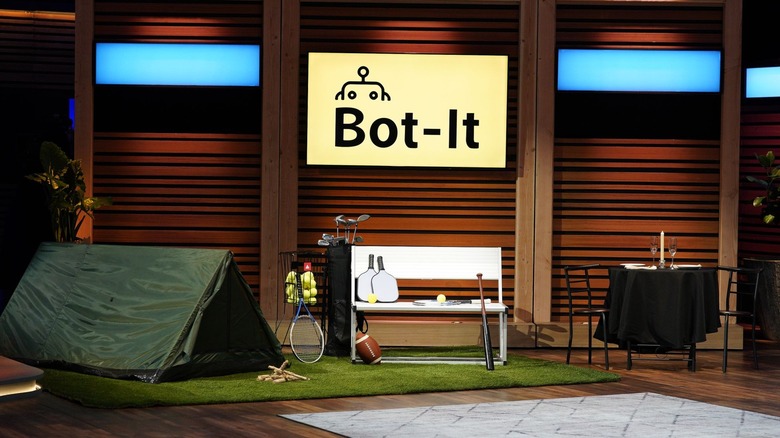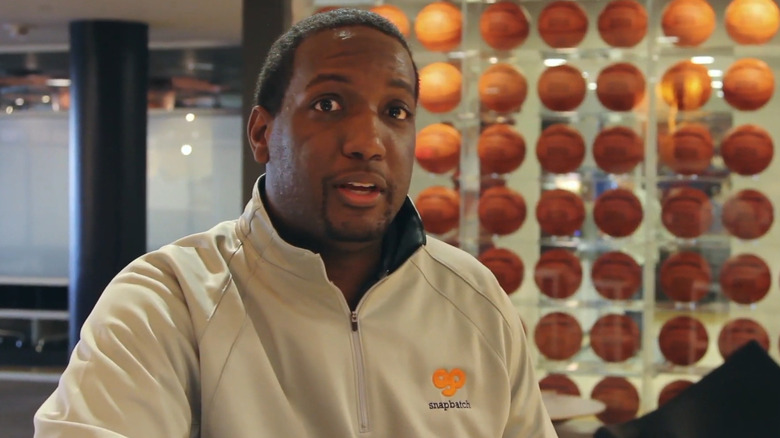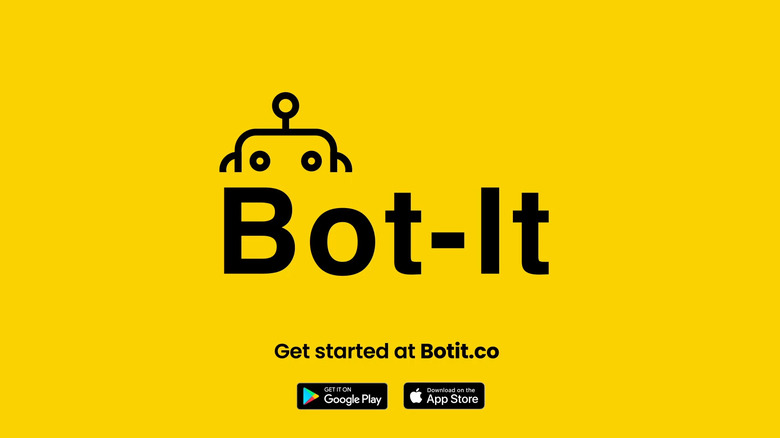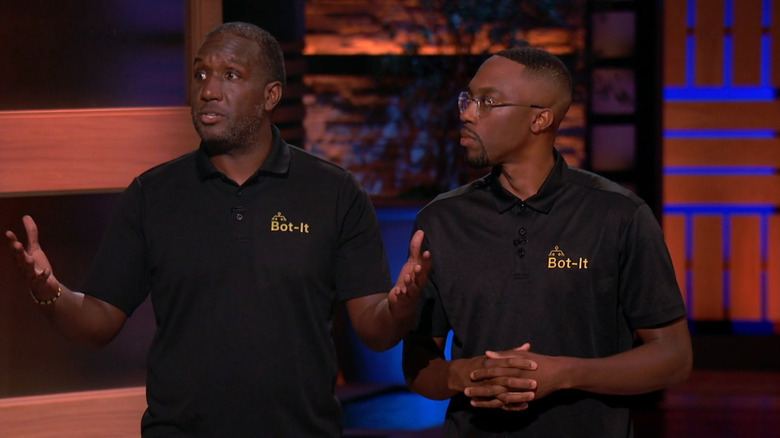What You Need To Know About Bot-It From Shark Tank
Season 15 of "Shark Tank" is in full swing as new sets of budding entrepreneurs shoot their shot with the show's panel of celebrity investors with the hopes of receiving the resources needed to take their ventures to the next level. Amongst the businesses set to make their "Shark Tank" debut is Bot-It, which seeks to open new doors into the world of technology for everyday people.
The company, started by Maurice Bachelor, is a web service that allows users to automate any number of regular tasks and skills performed online. The use of automation technology and artificial intelligence is becoming more and more prevalent in today's interconnected society. However, such concepts may come off as intimidating and distant to regular people. Bot-It aims to make this easy and accessible for such users.
Customers sign up for a subscription service and then are able to create their own Bots without any coding or excessive technical knowledge. From there, you can bring that Bot to a number of websites and begin ordering it on what tasks to perform and how to do so. The service has proven useful for a variety of industries and tasks from restaurant reservations to small business workflows to automating tennis court reservations and more. "Shark Tank" fans will soon get to see if Bot-It can automate a deal on the show, but before that happens, let's see what the company has in store.
Its founder is an engineer with tons of experience
As stated previously, Bot-It is the creation of entrepreneur Maurice Bachelor. The Ohio native earned his degree in Information Systems Technology and Computer Science from Cleveland State University and has since amassed an extensive wealth of experience in the engineering space. For over a decade, Bachelor held a number of key engineer and software development positions for real estate firms, technology companies, and various startups.
Prior to creating Bot-It, Bachelor was the co-founder of another innovative tech platform known as SnapBatch. Started in 2013, Bachelor helped develop new software technology in order to integrate the real-time gaming platform into sports team apps. With its blend of games, polls, and trivia, SnapBatch aimed to increase awareness and engagement on sports team apps from across the board. SnapBatch would build a substantial clientele list of such notable teams as the Detroit Pistons, Cleveland Cavaliers, Orlando Magic, and Detroit Red Wings. Unfortunately, it doesn't seem that SnapBatch is still around, as its website is currently defunct.
Bot-It was started in aftermath of a near fatal event
The drive for an entrepreneur to kickstart their dream can come from anywhere. For Bot-It founder Maurice Bachelor, it was a near-death experience that opened his eyes to what truly matters in life.
Bachelor was the victim of a devastating car accident. The collision left him unconscious and with some serious injuries, including a damaged skull, various neck injuries, and even harm done to one of his eye sockets. Despite the extreme pain he was in, Bachelor was struck with a sudden burst of inspiration, realizing just how precious his time was. "After learning about this and being in the most pain in my life, I didn't even know if I would be able to walk again, let alone do the one thing that brought me passion in my life, which is coding and building software products," Maurice said in an interview with LA Weekly.
With only one working eye, Bachelor got to creating Bot-It while still in his hospital bed. He initially intended the service to be used for booking tee times at golf courses, but it would end up becoming far more versatile than he envisioned.
Bot-It has already had success
Bot-It officially launched in 2021 and has gained healthy traction ever since. Each month would see the company's subscriber numbers double, with its automation service saving over 35,000 minutes and prearranging over 20,000 appointments since its start. Additionally, Bot-It is already beginning to make some meaningful partnerships, including one with Turkey's largest shipping logistics operation. ]
The team is on track to hit 1,500 users by the end of the year. So, how will their appearance on "Shark Tank" help? It's hard to say for sure but given the success they've already had, it's likely that even if Bot-It doesn't score a coveted deal, they will still see an uptick in new users thanks to the famous "Shark Tank" effect.
Bachelor has bigger hopes for Bot-It's success
Ultimately, Maurice Bachelor not only hopes to see his brand continue to grow, but hopes to inspire other entrepreneurs in the process. In particular, he hopes to inspire fellow Black creators and similar underrepresented voices in the tech field. Given that Black people only make up an estimated 8% of the tech workforce today, leaders such as Bachelor are crucial in ensuring that the future of the industry embraces an open-minded and diverse mindset alongside technical innovation. He eventually hopes to be able to share his story with others through platforms such as Ted Talk and Afro Tech.
For those curious to see what Bot-It is all about, you can learn more about the company on its website as well as following its Instagram, Facebook, Twitter, and LinkedIn accounts. Users can sign up for the service through the website or download the app via the iOS App Store.
What happened to Bot-It on Shark Tank?
Maurice Bachelor and Joel Griffith enter the "Shark Tank" seeking $150,000 in exchange for 10% of Bot-It. Their low-frills pitch mainly consists of hypotheticals and short videos, which seem to do relatively little in the way of educating some of the less tech-savvy investors about what their product actually is. Barbara Corcoran has to practically pull the modern definition of a "bot" out of them, and only partially succeeds.
Despite its $30,000 in sales in three months, Corcoran goes out, as does Lori Greiner, both of them citing a lack of experience with this space. Interestingly enough, Kevin O'Leary exits on moral grounds, feeling as though the concept of bots is too controversial to put his name behind, despite the fact that the product is pitched as giving the everyday consumer the ability to compete.
Bot-It still has a chance to catch two of the largest fish, as Mark Cuban and guest-shark Michael Rubin show interest in investing. Cuban opens by asking for 20%, which Rubin attempts to join in on. Cuban initially declines, however, lightly offending Rubin. Once the entrepreneurs express their preference for two sharks, however, the two billionaires come together and negotiate a deal of $300,000 for 30% (15% each). Bot-It accepts, marking the first deal of the episode.





